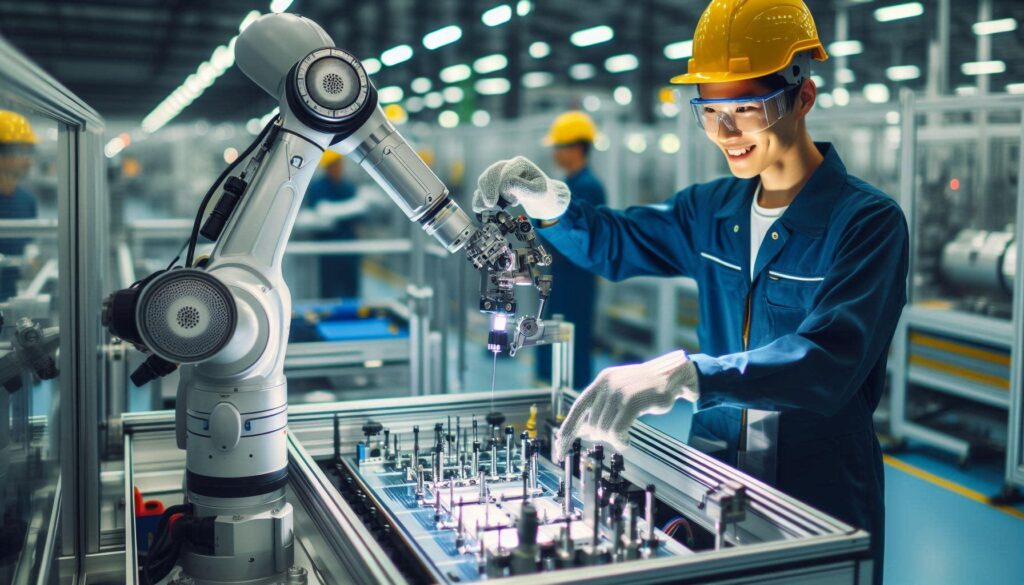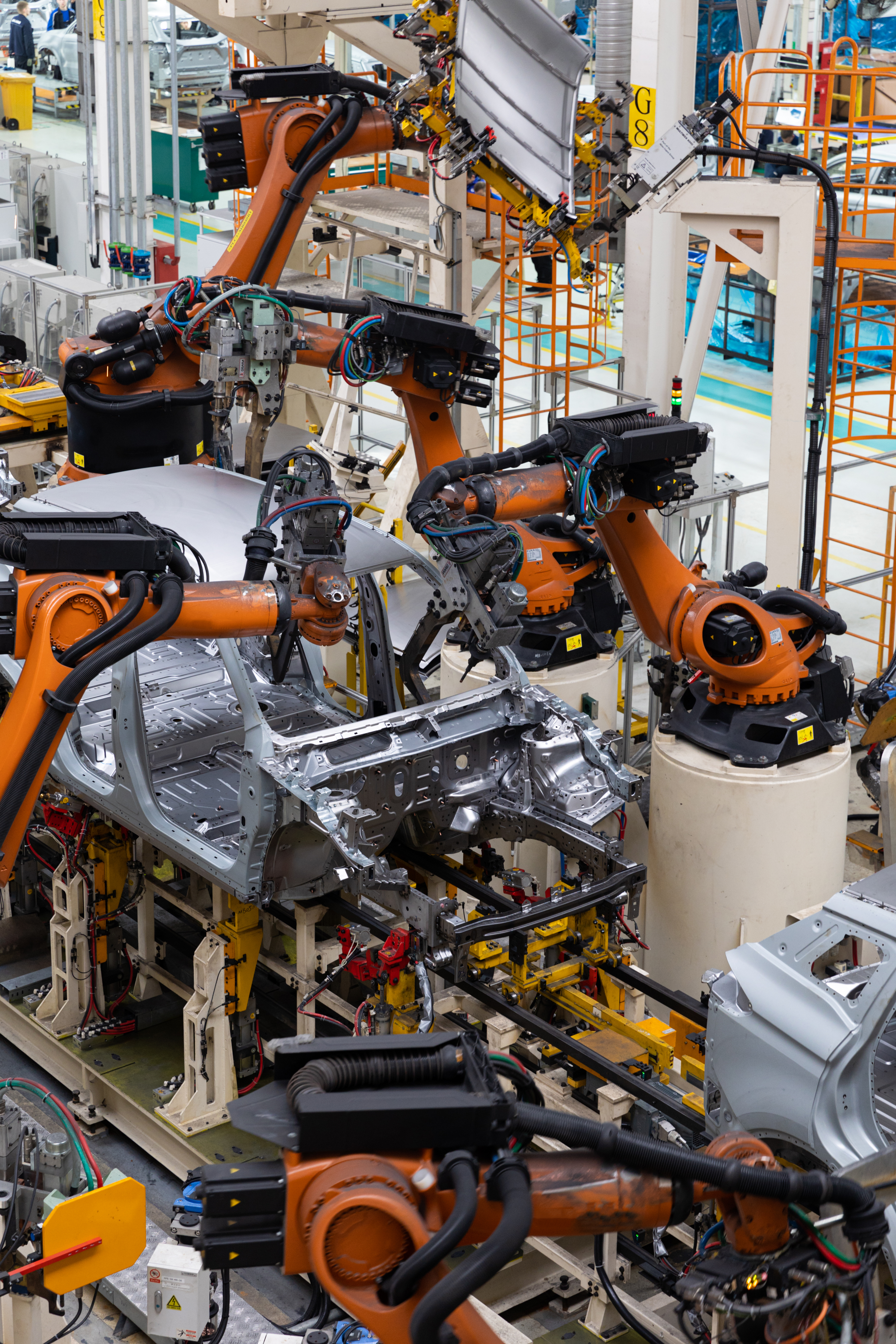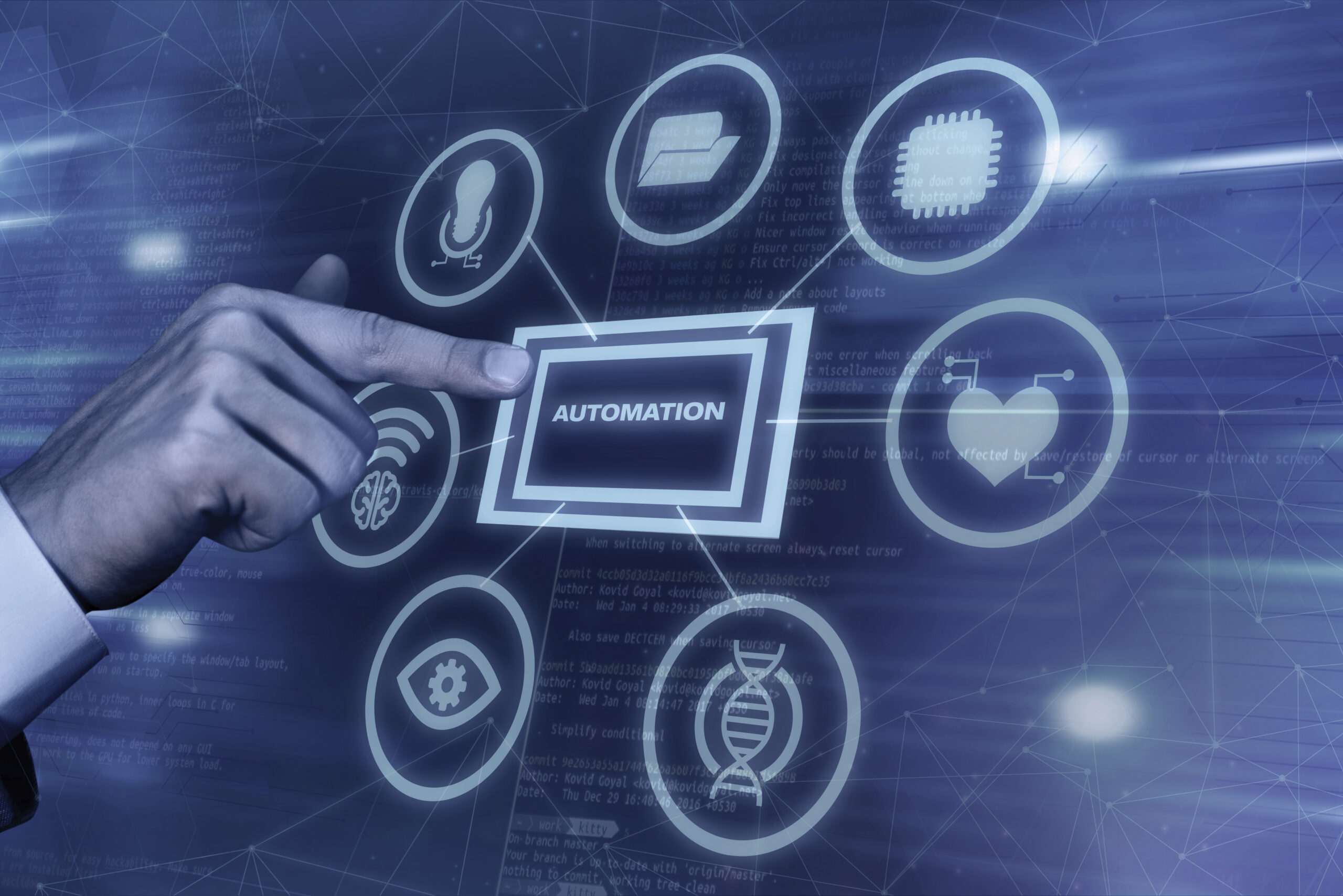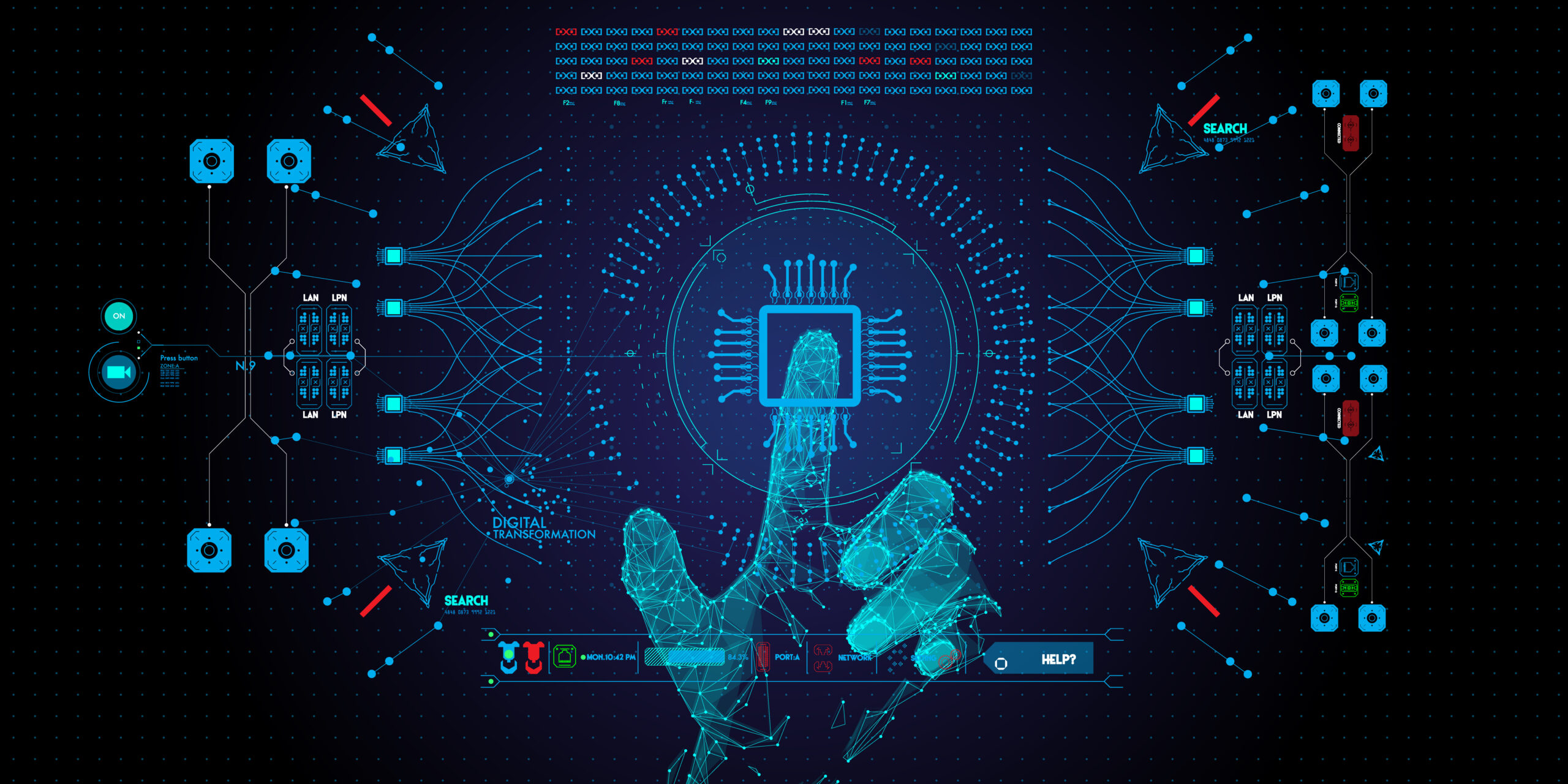Introduction
Automation is revolutionizing the Indian economy, boosting productivity, efficiency, and competitiveness across sectors. The use of advanced automation technologies such as robotics, artificial intelligence, and the Industrial Internet of Things (IIoT) is changing India’s manufacturing, infrastructure, and service sectors.
Current Status of the Automation Industry in India
Technological Advancements and Adoption
India has made significant strides in adopting automation technologies across different industries. The manufacturing sector, in particular, has been at the forefront, leveraging robotics and AI to enhance productivity and reduce operational costs. Companies like Tata Motors and Bajaj Auto have integrated automated assembly lines to streamline production processes. These innovations have not only improved efficiency but also significantly reduced the time-to-market for products.
The pharmaceutical and textile industries are also increasingly utilizing automation to ensure precision and maintain quality standards. Automated systems in pharmaceutical manufacturing help in maintaining the stringent quality control required in drug production, while textile companies use automation to manage complex operations like fabric cutting, dyeing, and finishing processes.
Government Initiatives
The Indian government has been proactive in promoting the adoption of automation technologies. Initiatives like the “Make in India” campaign aim to transform India into a global manufacturing hub, encouraging both domestic and foreign companies to invest in automation. The establishment of industrial corridors and smart cities further supports the integration of advanced technologies in urban planning and development.
Moreover, the Digital India initiative seeks to enhance the digital infrastructure and internet connectivity across the country. This foundational support is critical for the seamless operation of IoT devices and other automation technologies. The government is also providing incentives for research and development in the automation sector, recognizing its potential to drive economic growth and improve competitiveness.
Challenges and Opportunities
Despite the progress, the automation industry in India faces several challenges. The high initial cost of implementing automation solutions can be a barrier for small and medium-sized enterprises (SMEs). Additionally, there is a need for a skilled workforce capable of operating and maintaining advanced machinery. The education and training systems in India need to adapt to prepare the workforce for the demands of a highly automated industrial environment.
On the other hand, opportunities abound in sectors such as agriculture, where automation can address labor shortages and improve productivity. Automated farming equipment like drones and precision tractors can help optimize resource use, monitor crop health, and enhance yields. The healthcare sector also presents significant potential for automation, particularly in diagnostic and surgical procedures. AI-driven diagnostic tools and robotic-assisted surgeries can improve patient outcomes and make healthcare more accessible, especially in remote areas.
Future Potential of the Automation Industry in India

Technological Innovations
The next decade promises a wave of technological innovations that will further propel the automation industry in India. AI and ML are expected to play a crucial role in enhancing predictive maintenance, optimizing supply chains, and improving decision-making processes. Predictive maintenance uses AI to forecast equipment failures before they occur, allowing for timely interventions that minimize downtime and repair costs.
The integration of IoT will enable real-time monitoring and control of industrial operations, leading to increased efficiency and reduced downtime. Smart sensors and connected devices can collect and analyze data continuously, providing insights that help in optimizing production processes and energy use.
Industry-Specific Developments
- Manufacturing:
The adoption of advanced robotics and additive manufacturing (3D printing) will revolutionize the manufacturing landscape. Smart factories, equipped with autonomous systems and data analytics, will become the norm, driving productivity and reducing waste. Collaborative robots, or cobots, will work alongside human workers, handling repetitive tasks and allowing humans to focus on more complex and creative aspects of production. - Agriculture:
Automation technologies like drones and autonomous tractors will transform Indian agriculture, enabling precision farming and efficient resource management. This will help address the challenges of labor shortages and ensure sustainable agricultural practices. IoT-based soil sensors and automated irrigation systems can optimize water usage, reduce costs, and increase crop yields. - Healthcare:
The integration of AI and robotics in healthcare will enhance diagnostic accuracy and surgical precision. Telemedicine and automated health monitoring systems will improve access to healthcare services, particularly in rural areas. AI algorithms can analyze medical images more accurately and quickly than humans, aiding in early diagnosis and treatment planning.
Economy and Social impacts
The widespread adoption of automation technologies will have profound economic and social impacts. Economically, it will boost productivity, enhance competitiveness, and attract foreign investment. The creation of high-tech jobs will require a workforce with advanced skills, necessitating significant investment in education and training programs. Institutions will need to update curricula to include courses on robotics, AI, and IoT to prepare the future workforce.
Socially, automation has the potential to improve the quality of life by reducing human error, increasing safety, and providing better services in sectors like healthcare and transportation. For instance, autonomous vehicles can reduce traffic accidents caused by human error, while smart grids can ensure more reliable and efficient energy distribution.
Policy and Regulation support
For the automation industry to realize its full potential, supportive policies and regulations are crucial. The Indian government must continue to invest in infrastructure, provide incentives for research and development, and create a favorable regulatory environment. Policies should encourage innovation while ensuring that the benefits of automation are widely distributed across different sectors and social groups.
Public-private partnerships can also play a significant role in driving innovation and scaling up automation solutions. Collaboration between industry leaders, academic institutions, and government bodies can foster an ecosystem conducive to rapid technological advancements and practical implementations.
Workforce Transformation

The rise of automation brings with it the need for a transformative approach to workforce development. As automation takes over repetitive and mundane tasks, there will be a growing demand for jobs requiring higher cognitive skills and creativity. The Indian education system must evolve to meet these needs, focusing on STEM (Science, Technology, Engineering, and Mathematics) education and continuous learning opportunities.
Reskilling and upskilling programs will be essential to help the existing workforce transition to new roles created by automation. Initiatives like online courses, vocational training, and apprenticeships can equip workers with the necessary skills to thrive in an automated world.
Ethical and Social Considerations
While automation promises numerous benefits, it also raises ethical and social considerations. The displacement of workers due to automation technologies can lead to economic disparities if not managed properly. Policymakers need to address these challenges by ensuring that social safety nets and support systems are in place to assist displaced workers.
Furthermore, the ethical implications of AI and autonomous systems, such as data privacy, cybersecurity, and decision-making transparency, must be carefully considered. Establishing robust frameworks for the ethical use of automation technologies will be crucial to gain public trust and ensure equitable outcomes.
Sectoral Case Studies

1. Automation Industry
India’s automotive industry has been a significant beneficiary of automation. The adoption of automation technologies has streamlined production lines, improved quality control, and reduced manufacturing costs. For example, Maruti Suzuki, India’s largest car manufacturer, has integrated advanced robotics in its plants, resulting in enhanced productivity and reduced error rates.
2. Textile Industry
The textile industry in India, known for its labor-intensive processes, is gradually embracing automation to stay competitive in the global market. Automated looms, cutting machines, and quality control systems are being implemented to increase efficiency and reduce production time.
3. IT and Services sector
India’s IT and services sector is leveraging automation to enhance service delivery and customer satisfaction. Robotic Process Automation (RPA) is being used to automate repetitive tasks, freeing up human resources for more strategic activities. Companies like Infosys and TCS are at the forefront of adopting AI and ML to provide innovative solutions to their clients.
Conclusion
The automation industry in India is poised for remarkable growth over the next decade. With the right mix of technological advancements, government support, and industry collaboration, automation can significantly enhance productivity, drive economic growth, and improve the quality of life for millions of Indians. While challenges remain, the opportunities far outweigh them, making the future of the automation industry in India both promising and exciting. As India navigates this transformative journey, it will be essential to balance technological progress with inclusive development, ensuring that the benefits of automation reach all sections of society.
Strategic investments in education and training, supportive policy frameworks, and a focus on ethical considerations will be critical in harnessing the full potential of automation. By doing so, India can not only enhance its economic competitiveness but also ensure a more equitable and prosperous future for its citizens.



